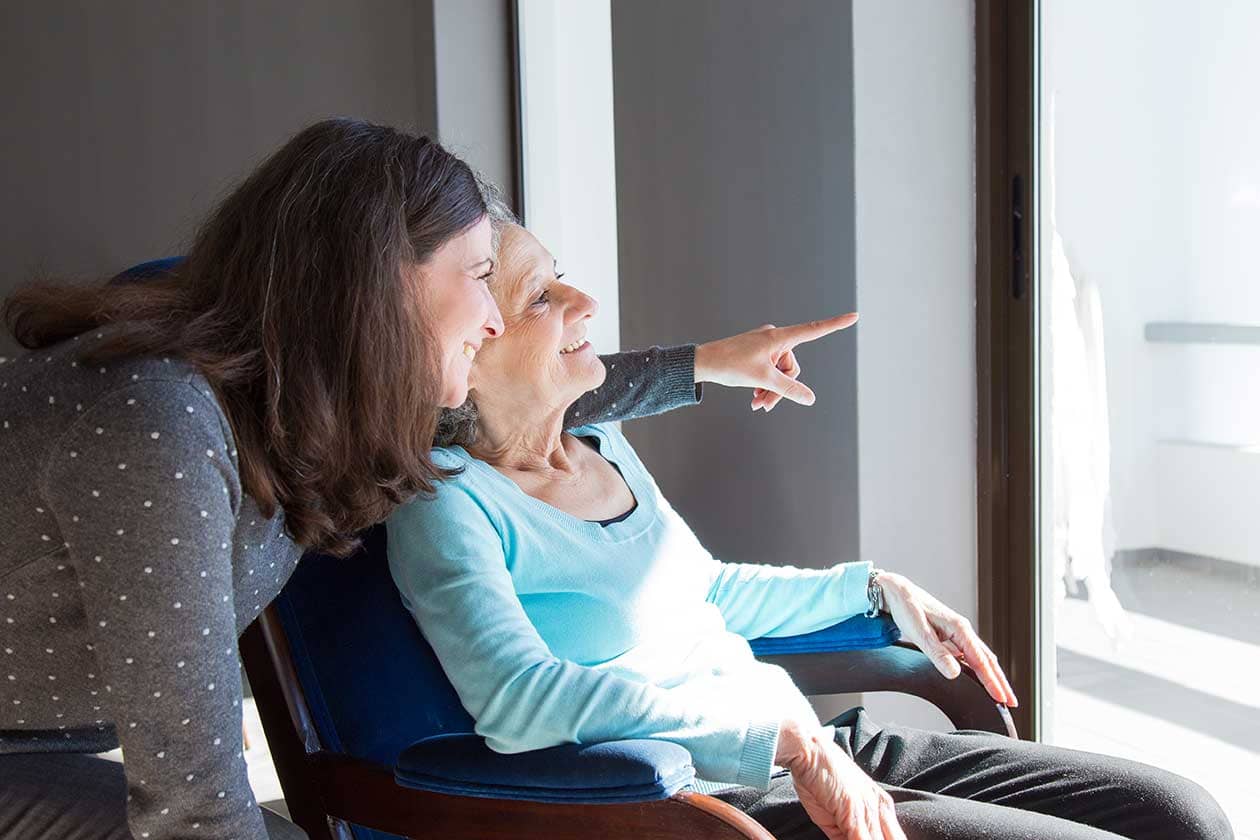Depression in older adults – symptoms, risks, & how to get help
- Admin |
- June 29, 2023
It is common to experience bad days or low moods occasionally, but experiencing these emotions...
Read more
You can sense when it is. Your elderly parent has fallen a few times, talks erratically about their meds, is isolating themselves more, or there are other warning signs.


You can sense when it is. Your elderly parent has fallen a few times, talks erratically about their meds, is isolating themselves more, or there are other warning signs. You fear that living alone is no longer safe for them. As a result, even though most elderly people want to remain in their current homes, if you're like many children of aging elders, you suggest that Mom or Dad move in with you as the next best option. It's a situation that's occasionally referred to as "shared living."
It's difficult to say for sure how many elderly people are living with relatives, but a Research Centre poll suggests that about 79 million persons in the US share a residence. Alternatively, almost one in three.
So you wouldn't be by any means alone. In order to determine if inviting a loved one to live with you is the best course of action for you, your parent, and your family, it is important to take some time to think about what that would actually entail. There are five important questions that you should ask.
Usually, families want to combine residences for safety reasons. But would a senior citizen feel any safer residing in yours? Even if it could be more convenient for you, which is a crucial consideration to take into account, it's crucial to be open about any possible safety issues. Do the risks in your home present difficulties for a person with mobility issues?
Are the entrances, for instance, large enough to allow a walker? Does the home have a standalone shower? Will Mom or Dad have to climb stairs all day long? Yes, it is possible to employ a home remodeler that specializes in "aging in place" modifications, but these services are sometimes very expensive.
Parents may experience loneliness and isolation when they are alone, perhaps for the first time in their lives. This is especially true for senior citizens who are reluctant drivers or who have given up driving altogether. Isolation has substantial health concerns, ranging from depression to early mortality. Therefore, it's crucial to address the situation.
Moving them in with your family may appear to fix the issue, but will it actually? Families often have a lot of comings and goings, making them busy. Will Mom spend a lot of time alone due to scheduling and job obligations? Exist any neighboring senior citizens that you might socialize with? What occurs if you are unable to attend? Is there a different relative or friend that could help out? All of this is manageable, but it takes preparation.
Moving a parent it may seem like the perfect answer to a stressed-out adult kid. You may avoid wasting time and effort traveling back and forth between their home and yours.
When you are a family carer, that may be really beneficial. But it's crucial to consider everyone's feelings. Are your family's other members amenable to the plan? Is the bond between your spouse or partner and your parent strong enough to withstand cohabitation?
Do your siblings agree? Will they contribute to the caregiving duties so your own family may take much-needed breaks? While there will undoubtedly be a time of adjustment following any significant shift, you don't want to run the danger of developing temporary rifts among your family.
If you don't have a separate in-law suite or second master suite, it could be difficult to maintain privacy when an elderly parent moves in. Everyone can experience tension in a cramped living arrangement, which is unsatisfactory. The lack of privacy may be difficult for couples and grandkids as well as other adults used to having their own place.
Here's a clever idea for maximizing the available space: Make sure your home is in order before inviting your parent to move in. Can you organize the rooms such that each person has their own personal space? and keep your bedroom apart from that of your parents?
Having an elderly parent or other family member remain with you while they recuperate from an illness, an accident, or surgery may make sense. A respite or transitional stay at a nearby senior living facility, where expert help is available, could be the best choice, though, if they need more care than you can offer. Ask whether the communities offer in-house rehabilitation services; they may be funded by Medicare and can hasten recovery.
A brief visit to your house may also be a good opportunity for the entire family to offer support if one of your parents has died away and the other is grieving. However, with time, especially if you and your children are constantly coming and going, your surviving parent's loneliness could only get worse.
A senior living complex that is independent or assisted can be a better choice. These communities offer a secure setting with nutritious meals, 24/7 personal care assistance, and—most importantly for the emotional health of your loved one—a variety of social activities to partake in with others their own age, many of whom are likely to have gone through comparable life changes.

It is common to experience bad days or low moods occasionally, but experiencing these emotions...
Read more
Dogs are excellent elderly companions. Dogs are a delight to share a house with because of their amusing, devoted, and adorable personalities...
Read more
Any age can find dating intimidating, but older adults in particular. The majority of people only date once...
Read more
Aging is a universal truth; everybody who has been born will grow older. However, seeing your loved ones grow older and weaker is hard...
Read more
Memory holds real significance in everyone’s life. It is a representation of our past experiences with happy, sad, or mixed emotions...
Read moreFEEL THE PLEASURE OF BEING CAREFREE